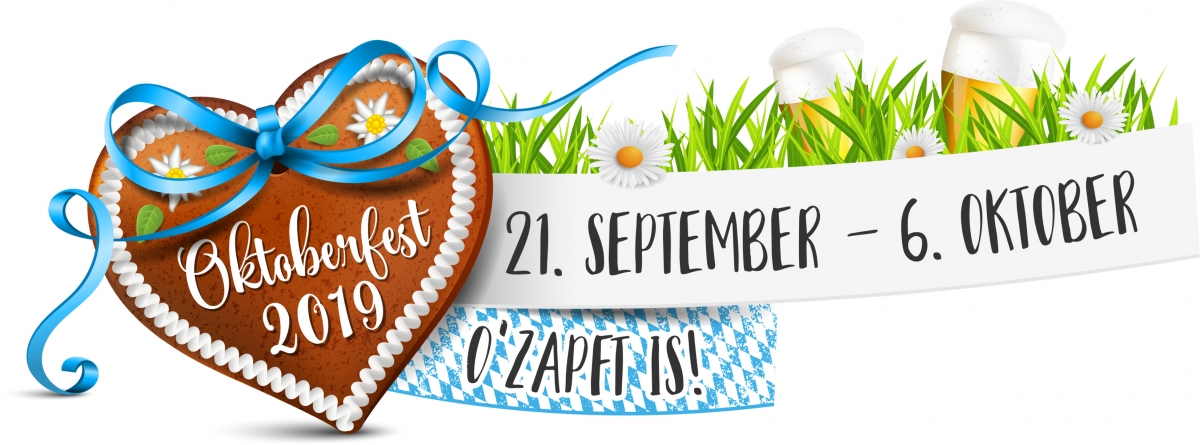
Can “Oktoberfest” function as a trademark?
The German Patent and Trademark Office (GPTO) refused registration of the trademark “Oktoberfest” – just before the Münchner Oktoberfest will start.

Munich locals and visitors from all over the world are thrilled: Oktoberfest or “Wiesn” 2019 will start on 21 September 2019 – the Munich “original” – often copied, but still unmatched. For “Münchner Kindl” (the people born in Munich) it is unthinkable that someone might not connect the terms “Oktoberfest” or “Wiesn” with beer and beer tents, brass band music and fairground rides and – of course – with Bavaria and Munich (and definitely with no other country or city). The German Patent and Trademark Office (GPTO) and the European Union Intellectual Property Office (EUIPO) say that this is also the case for the rest of the German-speaking public, and that, therefore, neither “Oktoberfest”, nor “Wiesn” are capable of being registered as trademarks (at least not for those goods and services which are of most interest for the applicant, the city of Munich).
I. Several attempts for obtaining EU- and German-wide trademark protection for “Wiesn” and/or “Oktoberfest”
In 2015, Munich had applied at the EUIPO for trademark protection of the expression “Wiesn” as a word mark (EUTM no. 014912802). The EUIPO objected the mark, arguing that the broad public will understand “Wiesn” as synonym for “Oktoberfest”. “Oktoberfest” is a very famous festival, as the broad public knows. The expression “Wiesn” allegedly implies to the addressed audience that goods and services for which the expression is used, are “somehow” related to the Oktoberfest. However, after some struggles, the mark “Wiesn” was successfully registered in 2018 for some goods and services in classes 3, 9, 38, 39, 40 and 42 – for example for cosmetics, electronic parts, telecommunication services, design of websites and software. To speak honestly: those are not the goods and services which cover the main fields of the “real” Wiesn, but indeed goods and services which will not be related to the famous beer festival. Nevertheless, the registration of “Wiesn” as a word mark for at least some goods and services is a partial success for the applicant.
While the proceedings regarding the potential mark “Wiesn” were still pending before the EUIPO, the applicant filed a word mark application “Oktoberfest” with the EUIPO (EUTMA no. 015535008), designating 27 (of 45 possible) classes of the Nice Classification, inter alia, beer and non-alcoholic beverages in class 32, alcoholic beverages in class 33, advertising services in class 35, organization of public festivals in class 35 and catering for guests in class 43. Also, this application was objected by the EUIPO Examining Division – apparently for all goods and services. For unknown reasons, the EUIPO’s online register file does not show any documents to the public. However, according to the status of the register, an appeal is pending before the EUIPO Board of Appeal; hence, the applicant obviously is further attempting to get the application registered.
In 2018, the applicant additionally tried it locally and filed an application for “Oktoberfest” at the GPTO (German trademark application no. 30 2018 008 442.3), designating only services in classes 35, 41 and 45. The GPTO also objected this trademark; the applicant withdrew the application in the beginning of September 2019, probably in order to avoid a negative official decision.
II. Comment and Forecast
As to the further developments of the proceedings, it seems like Munich’s strategy is focusing on the EU applications rather than further trying to convince the German instances of the registrability of the term “Oktoberfest” as a trademark. At least the applicant has some trademark protection for the term “Wiesn”. If the EUIPO Board of Appeal confirms that the term “Oktoberfest” is not registrable, the applicant will likely bring the matter to the Higher European instances (General Court and European Court of Justice).
As is so often the case, there are many and diverging interests regarding this matter. The annual Oktoberfest is of course an immense source of income for Munich. In addition, there are a lot of “Oktoberfest” imitations all over the world which surely do not always meet Munich’s expectations regarding how such a festive is to be celebrated and what kind of products are to be offered. In addition, those imitations do not have any connection to Bavaria and Munich. For these reasons, it is of great importance to Munich to protect the expression “Oktoberfest” and to have control over its use by third parties. Obtaining trademark rights for “Oktoberfest” for goods and services related to a public festival would put Munich in the position to prohibiting third parties to use “Oktoberfest” for their interpretations of this event and potentially also to bind and control third parties who make money with the offer of “Oktoberfest” merchandising products. This is a huge market with almost unlimited growth potential.
The question is: Should the city of Munich receive a “monopoly” for “Oktoberfest”? What would happen to all the other “little” Oktoberfests around the world? Finding a fair solution for all parties involved will be a difficult task for the offices and courts.
Related
- "Neuschwanstein" is not a trademark!
- 1 December 2017: Madrid Monitor takes its place as the one and only tool for tracking international trademarks
- 1 January 2020 - Changes in Classifications - Trademarks, Designs, Patents and Utility Models
- 100th Anniversary of Bavaria (Germany) - A glance at trademarks, start-ups, innovation & events
- 10th Anniversary Edition - 10 Things to Know about LexDellmeier - Past, Present & Future
- 14 June 2013: Munich Patent Law Conference - Calculating Damages in Patent Infringement Cases
- 15 Top Brands - Interactive Brand Rating - Years 2000 - 2018
- 15 Years LexDellmeier - 2024 New Year Wishes
- 2014: Statistics for Community Trademarks
- 2024 World IP Day - Building Our Common Future with Innovation and Creativity
